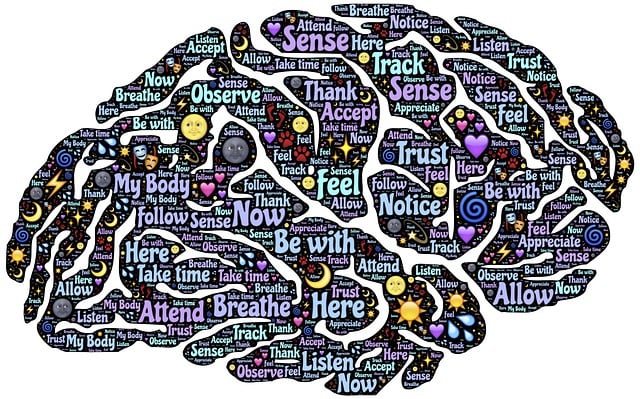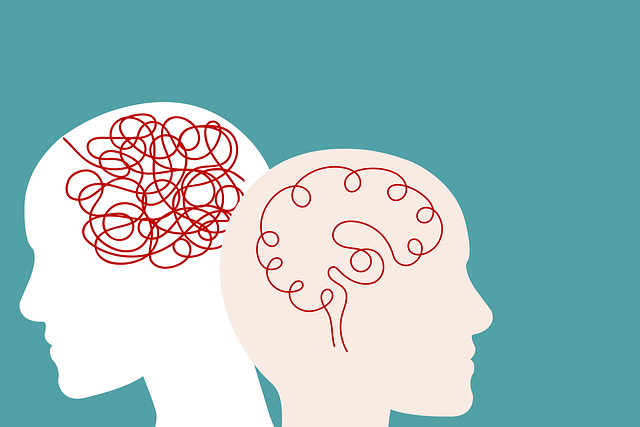Lakewood Russian Speaking Therapy offers culturally sensitive mental health care tailored for Russian speakers, integrating mindfulness techniques to address anxiety, stress, and depression. Their evaluation methodology combines quantitative methods (surveys, questionnaires) with qualitative insights (interviews, focus groups) using Mixed Methods Evaluation to assess program impact. This comprehensive approach ensures the program's effectiveness in improving mental wellness within the Russian-speaking community while continuously refining its offerings based on participant feedback and data analysis.
Mental wellness program evaluations are vital for measuring success, identifying areas of improvement, and ensuring quality care. This comprehensive guide explores various evaluation methods, focusing on the unique approach of Lakewood Russian Speaking Therapy. We delve into quantitative metrics for assessing program effectiveness and qualitative techniques to understand participant experiences. By combining these strategies—including mixed-methods evaluation—mental health professionals can enhance their practices. Through continuous improvement driven by evaluation data, programs like Lakewood Russian Speaking Therapy can offer more tailored and effective support.
- Understanding Lakewood Russian Speaking Therapy: A Cultural Approach to Mental Health
- Assessing Program Effectiveness: Quantitative Methods for Measurement
- Qualitative Insights: Uncovering Participant Experiences and Perceptions
- Mixed Methods Evaluation: Combining Quantitative and Qualitative Techniques
- Continuous Improvement: Using Evaluation Data to Enhance the Wellness Program
Understanding Lakewood Russian Speaking Therapy: A Cultural Approach to Mental Health

Lakewood Russian Speaking Therapy represents a unique cultural approach to mental health care, catering specifically to the Russian-speaking community. This therapeutic method recognizes the importance of understanding cultural nuances and linguistic barriers in providing effective treatment. By offering services tailored to this demographic, therapists create a safe and supportive environment where individuals can openly discuss their mental wellness challenges.
The practice integrates various techniques, including elements of mindfulness meditation, to address common issues such as anxiety, stress, and depression. The Mindfulness Meditation component encourages clients to focus on the present moment, cultivating awareness and inner calm. This cultural adaptation of therapy aims to bridge the gap between traditional Western practices and the specific needs and experiences of Russian-speaking individuals, ultimately enhancing mental wellness within this community.
Assessing Program Effectiveness: Quantitative Methods for Measurement

Evaluating the effectiveness of mental wellness programs is a multifaceted process, and quantitative methods play a crucial role in measuring their impact. At Lakewood Russian Speaking Therapy, for instance, various assessment tools are employed to gauge improvements in client outcomes. This involves administering standardized questionnaires and surveys that assess symptoms, attitudes, and behaviors related to mental health. These quantitative data provide an objective basis for comparing program effectiveness over time and across different interventions.
One common approach is to use structured interviews or self-report measures to collect data on specific aspects of mental wellness, such as anxiety, depression, stress management, and communication strategies. For example, the Compassion Cultivation Practices scale can assess clients’ ability to cultivate compassionate thoughts and emotions, while the Mental Health Awareness Inventory may evaluate their understanding and acceptance of their own mental health status. By analyzing changes in these scores before and after program participation, therapists and researchers at Lakewood Russian Speaking Therapy can identify which components of the program are most effective in fostering positive mental wellness outcomes.
Qualitative Insights: Uncovering Participant Experiences and Perceptions

Evaluating mental wellness programs involves a deep dive into participant experiences and perceptions, offering valuable qualitative insights. This approach, often employed by Lakewood Russian Speaking Therapy, allows for a nuanced understanding of program effectiveness. Through in-depth interviews and focus groups, participants share their journeys—the challenges they’ve faced, coping skills developed, and the impact of various interventions. This data is a rich resource for improvement, revealing what works well and areas that need attention.
The process unfolds beyond mere satisfaction surveys, delving into emotional experiences, personal growth, and the overall perception of support received. For instance, the Mental Wellness Podcast Series Production might capture stories of resilience, while Compassion Cultivation Practices could be discussed as transformative tools. These qualitative insights are instrumental in refining program content, ensuring it aligns with participants’ needs and expectations.
Mixed Methods Evaluation: Combining Quantitative and Qualitative Techniques

Mixed Methods Evaluation offers a comprehensive approach to understanding the impact of mental wellness programs like Lakewood Russian Speaking Therapy. By combining both quantitative and qualitative techniques, researchers can gain deeper insights into various aspects of program effectiveness. Quantitative methods, such as surveys and statistical analyses, provide data on participant demographics, engagement rates, and changes in symptoms or psychological well-being. This data offers tangible evidence of the program’s reach and potential success in large-scale implementation.
Qualitative techniques, like interviews and focus groups, complement this quantitative foundation by uncovering participants’ subjective experiences, perceptions, and personal growth journeys. These methods allow for an exploration of factors contributing to resilience building within mental wellness coaching programs development. By integrating these diverse data sources, researchers can create a holistic view of the program’s strengths, areas for improvement, and its overall influence on participants’ mental wellness.
Continuous Improvement: Using Evaluation Data to Enhance the Wellness Program

Evaluating a mental wellness program is an ongoing process that offers valuable insights into its effectiveness and areas for improvement. At Lakewood Russian Speaking Therapy, we recognize the importance of continuous quality enhancement. By analyzing participant feedback, survey results, and observational data, our team can make informed decisions to optimize the wellness program. This approach ensures that the initiatives undertaken are aligned with the evolving needs of the community they serve.
The evaluation data collected provides a rich source for identifying successful components and those requiring adjustments. For instance, positive feedback on specific therapy sessions or workshops may highlight effective strategies for boosting self-esteem improvement. Conversely, areas that need refining could include enhancing empathy building strategies within group activities. Leveraging these insights allows Lakewood Russian Speaking Therapy to adapt and refine its programs, ensuring they remain impactful and relevant in promoting mental wellness.
The evaluation of mental wellness programs, such as Lakewood Russian Speaking Therapy, is a multifaceted process that leverages both quantitative and qualitative methods. By combining assessments of program effectiveness through statistical analysis with insights into participant experiences and perceptions, we gain a holistic understanding of the program’s impact. Integrating these techniques, as demonstrated in our exploration of mixed methods evaluation, allows for continuous improvement in wellness initiatives. This comprehensive approach ensures that programs like Lakewood Russian Speaking Therapy remain responsive to the diverse needs of their participants, ultimately enhancing mental health outcomes.














